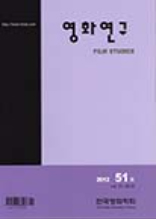- 영문명
- Alternative style of documentary: the application of Genre Convention: Film Noir style employed in The Thin Blue Line
- 발행기관
- 한국영화학회
- 저자명
- 남승석 조혜랑
- 간행물 정보
- 『영화연구』제50호, 235~277쪽, 전체 43쪽
- 주제분류
- 예술체육 > 예술일반
- 파일형태
- 발행일자
- 2011.12.31

국문 초록
영문 초록
This paper studies the pervasive shift in the comprehension of the word documentary, which explores the blurring lines of reality, between fact and fiction, documentary and feature. The work of Errol Morris, an American documentary director, could be located within the new-style of poetic documentary that permits organizing its material to produce emotional affect and even a dialogue with the collective consciousness. Morris draws on popular disclosure of trauma and weaves it into documentaries that are also intrinsically about breaking down institutional resistance to aesthetic innovation. The Thin Blue Line (1988) is the fascinating, controversial true story of the arrest and conviction of the wrong man, Randall Dale Adams, for the murder of a Dallas policeman in 1976. The film handles the problem of figuring traumatic historical truths inaccessible to representation by any simple or single reenactment of a memory, and the reenactment nevertheless operates in complicated and indirect refractions of reality. The film uses reenactments less to authenticate the past than to stress the variability of its interpretation. It is this paradox of the intrusive manipulation of documentary truth, combined with a serious quest to reveal some ultimate truths, that calls for a alternative style of documentary. Morris eloquently adopts the film noir genre convention and the mechanism to voice a troubled minority, against the predetermined truth of the matter. Voice-over, flashback, subjective camera, and multiplicity are the cinematic apparatus of the noir mechanism that are used in the reenactments of the murder. Morris represents for us the figure or image, the stereotype of criminal, by representing what others imagine Adams said and did. He allows us to see how criminality is constructed by an historically, materially motivated subjectivity. The preferred technique that Morris uses to draw subjectivity from social actors is to set up a situation in which the action will come to Morris. In this privileged moment of verite the past repeats. We thus see the power of the past by finding its traces, in repetitions and resistances, in the present. The strategy Morris employed in the use of cinematic apparatus enables audiences to see the Adams’case from a radically different perspective, thus the filmic experience of the disturbing multiplicity eventually yields an ethical reaction from the audiences. The film was credited with overturning the conviction of Adams, a crime for which he was originally sentenced to death.
목차
1. 들어가며
2. 문제제기
3. 에롤 모리스와 그의 작품 개요
4. 극영화에서 다큐멘터리의 활용: 필름 느와르
5. 필름 느와르 영화적 장치들에 대한 고찰
6. <가늘고 푸른 선> 분석
6. 나가며
키워드
해당간행물 수록 논문
참고문헌
최근 이용한 논문
교보eBook 첫 방문을 환영 합니다!

신규가입 혜택 지급이 완료 되었습니다.
바로 사용 가능한 교보e캐시 1,000원 (유효기간 7일)
지금 바로 교보eBook의 다양한 콘텐츠를 이용해 보세요!


